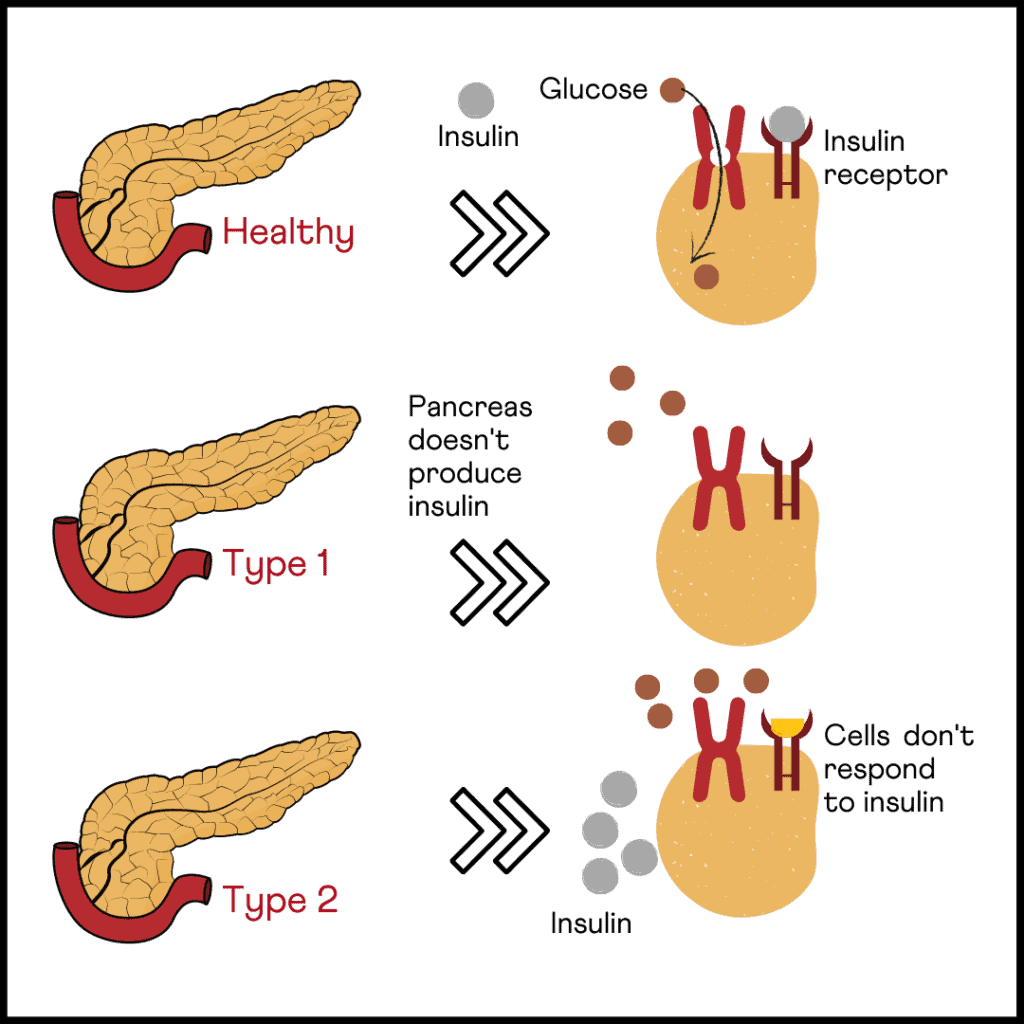Abstract
Insulin resistance is a condition that prevents the body from responding to insulin the way it should. When the cells don't absorb and utilize sugar for energy, glucose builds up in the blood, ultimately resulting in diabetes. A study by Standford Medicine scientists has established a relationship between insulin resistance and major depressive disorder.
What Is Insulin Resistance?
Insulin is a hormone secreted by the pancreas.
It instructs the cells to take up glucose from the blood and utilize it for energy.
This is achieved by the insulin receptors (proteins that bind to insulin) present on the surface of the cells.
In people with insulin resistance, the insulin receptors do not function well.
As a result, the cells don’t respond to insulin and uptake glucose.
This leads to increased levels of glucose in the bloodstream.
Some causes of insulin resistance include obesity, inactive lifestyle, excessive carbohydrate intake, smoking, hormonal disorders, and sleep disorders.
Prediabetes often occurs in people with high insulin resistance.
According to the Centers for Disease Control and Prevention, around 1 in 3 people in the United States have prediabetes.
Insulin resistance is usually asymptomatic until diabetes develops.

Image: Insulin and Diabetes
Living with diabetes or insulin resistance often affects mood and mental health.
Blood glucose fluctuations may lead to mood swings, resulting in stress, depression, and anxiety.
Studies reveal that about 40% of people who experience mood disorders are insulin resistant.
Major Depressive Disorder
Major depressive disorder (MDD) is a mood disorder.
People with MDD struggle with persistent depression, lack of interest in activities, and behavioral problems.
It is one of the most common mental health conditions in the United States.
Several factors, including biological, psychological, and social causes, contribute to this condition.
Medications, psychotherapy, and lifestyle changes can effectively treat people with MDD and help them manage their symptoms.
Symptoms Of Major Depressive Disorder
- Sudden loss or gain of weight
- Change in appetite
- Sleep disorders
- Lack of interest in activities
- Difficulty concentrating, thinking, or making decisions
- Feeling worthless or guilty about things that wouldn't usually make you feel that way
Insulin Resistance And Depression - The Connection
The study conducted by the researchers of the Stanford team used the data collected from the Netherlands Study of Depression and Anxiety to learn the causes and consequences of depression.
For the first phase of the study, the researchers considered a pool of 601 men and women.
They checked the data for the three common markers of insulin resistance- fasting blood glucose levels, waist circumference, and serum fat levels.
Those found to be insulin resistant were then observed for their risk for developing MDD over a period of 9 years.
It was found that:
- A moderate increase in insulin resistance was linked to an 89% increase in the rate of new cases of major depressive disorder.
- Each five-centimeter increase in waist circumference was linked to an 11% greater depression risk.
- Each 18 mg/dl increase in fasting blood sugar levels was tied to a 37% higher rate of depression.
However, in a few members of this batch, there was little clarity about when they developed insulin resistance.
The next phase of the study thus involved studying 400 participants who had no signs of depression and insulin resistance at the onset of the study.
Among these, those who became insulin resistant (one-fourth of the phase 2 study group) at the 2-year point were more like to develop MDD in the next 7 years than the others whose blood glucose levels were normal.
While the study was unable to establish a strong relationship for parameters like waist circumference and cholesterol levels, fasting glucose emerged as a significant factor for MDD.
“Those developing prediabetes within the first two years of the study had 2.66 times the risk for major depression by the nine-year follow-up milepost, compared with those who had normal fasting-glucose test results at the two-year point.”
Summary
- Insulin resistance is a condition where the cells are unable to absorb and utilize glucose.
- Insulin resistance is a strong risk factor for type 2 diabetes and several mood disorders.
- A study by the Stanford research team observed that those who experience insulin resistance are at nearly 3 fold increased risk for being diagnosed with major depressive disorder.
References
https://medicalxpress.com/news/2021-09-insulin-resistance-major-depressive-disorder.html
https://www.cdc.gov/diabetes/basics/prediabetes.html
https://www.mayoclinic.org/diseases-conditions/depression/symptoms-causes/syc-20356007




